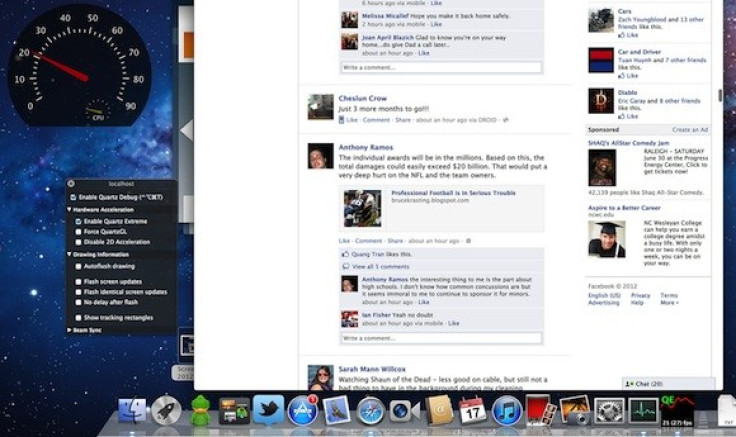Retina MacBook Pro Graphics Benchmark: Pushing the Limits of Graphics Capabilities
Earlier this month, following the launch of the Retina MacBook Pro, AnandTech provided a glimpse of the device's performance with its hands-on demo. It revealed the various resolution options available to users, while also testing the display colour and contrast through benchmarks in comparison to other notebooks.
With further analysis of the machine's components, Anand Tech came out with a detailed review of Retina MacBook Pro recently. Graphics benchmark constitutes an important part of the review that deserves special mention in the context of Retina display technology.
According to MacRumors, with integrated Intel HD 4000 and discrete NVIDIA GeForce GT 650M graphics chipset onboard, the device easily drives 2880 x 1800 pixels in standard Retina mode and as many as 3840 x 2400 pixels at its highest non-Retina resolution. The downscaled display resolution is just 1920 x 1200 pixels, which is a norm across most notebooks. Thus, Apple seems to be pushing the pixels limit beyond the normal graphics capabilities of the machine.
"At the default setting, either Intel's HD 4000 or NVIDIA's GeForce GT 650M already have to render and display far more pixels than either GPU was ever intended to. At the 1680 and 1920 settings however the GPUs are doing more work than even their high-end desktop counterparts are used to," reports AnandTech in its review, concerning the machine's graphics capabilities.
As AnandTech notes, thanks to breaching the pixel processing limit barrier, the Retina MacBook Pro evidently slows down and struggles to maintain a "consistently smooth experience".

"At 2880 x 1800 most interactions are smooth but things like zooming windows or scrolling on certain web pages is clearly sub-30fps. At the higher scaled resolutions, since the GPU has to render as much as 9.2MP, even UI performance can be sluggish. There's simply nothing that can be done at this point - Apple is pushing the limits of the hardware we have available today, far beyond what any other OEM has done," the report explains.

AnandTech emphasises the excessive CPU load on browser scrolling, wherein the resource intensive Facebook news-feed pages display at 50 frames per second (fps) on a 2011 MacBook Pro, while the Retina version struggles to reach 20 fps, as it pushes that many more pixels at the same time.
Although, the report stresses that OS X Mountain Lion may address the slow image-rendering issue by leveraging Core Animation, AnandTech's benchmark could only muster a paltry 20-30 fps even while running Mountain Lion. We may have to wait a bit longer for further performance improvements, as advancements in hardware technology need to catch up with the ominous demands imposed by new ultra-high resolution displays.
© Copyright IBTimes 2024. All rights reserved.






